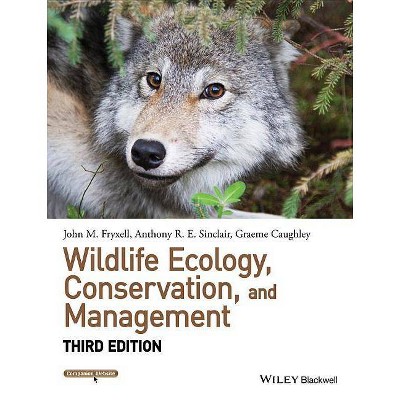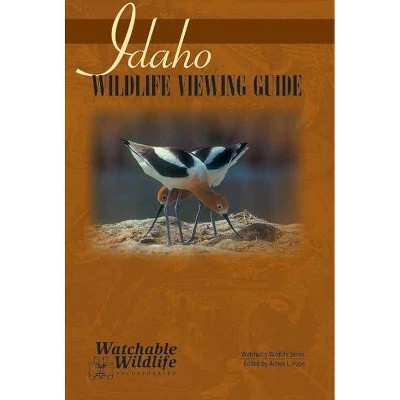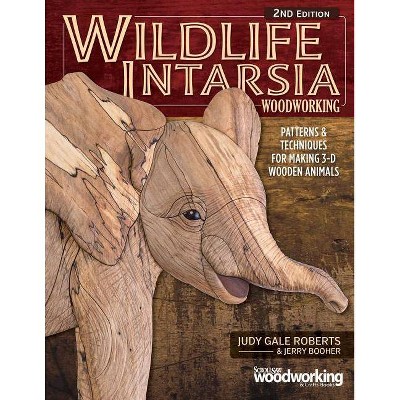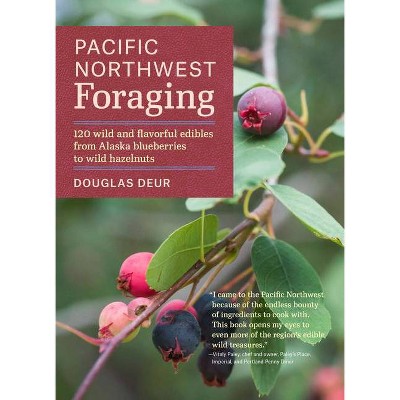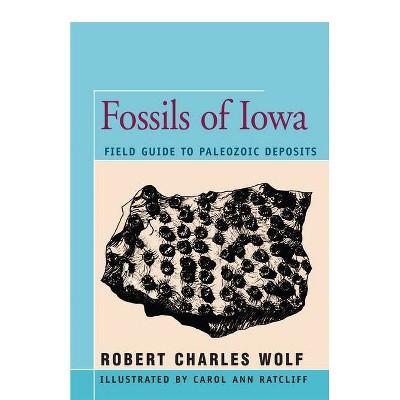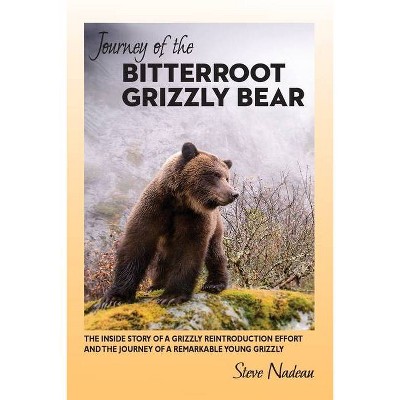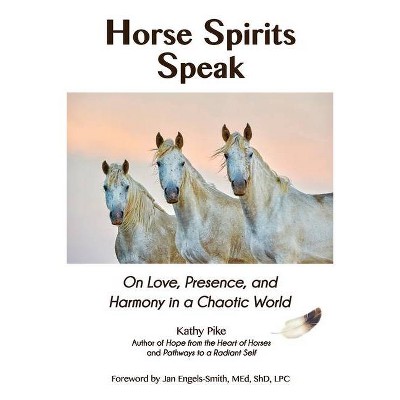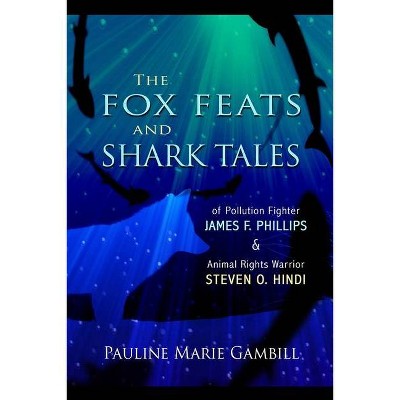Conservation of Wildlife Popul - 2nd Edition by L Scott Mills (Paperback)
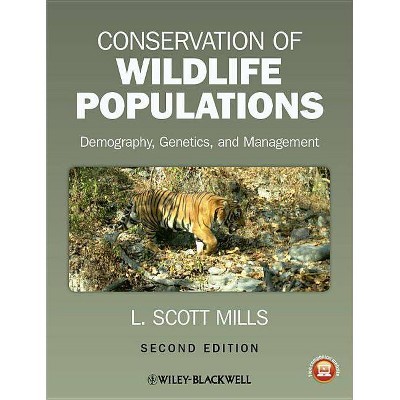
Similar Products
Products of same category from the store
AllProduct info
<p/><br></br><p><b> Book Synopsis </b></p></br></br><p>Population ecology has matured to a sophisticated science with astonishing potential for contributing solutions to wildlife conservation and management challenges. And yet, much of the applied power of wildlife population ecology remains untapped because its broad sweep across disparate subfields has been isolated in specialized texts. In this book, L. Scott Mills covers the full spectrum of applied wildlife population ecology, including genomic tools for non-invasive genetic sampling, predation, population projections, climate change and invasive species, harvest modeling, viability analysis, focal species concepts, and analyses of connectivity in fragmented landscapes. With a readable style, analytical rigor, and hundreds of examples drawn from around the world, <i>Conservation of Wildlife Populations (2<sup>nd</sup> ed)</i> provides the conceptual basis for applying population ecology to wildlife conservation decision-making. Although targeting primarily undergraduates and beginning graduate students with some basic training in basic ecology and statistics (in majors that could include wildlife biology, conservation biology, ecology, environmental studies, and biology), the book will also be useful for practitioners in the field who want to find - in one place and with plenty of applied examples - the latest advances in the genetic and demographic aspects of population ecology.<br /> <br /> <b>Additional resources for this book can be found at: www.wiley.com/go/mills/wildlifepopulations</b>.</p><p/><br></br><p><b> From the Back Cover </b></p></br></br><p>Population ecology has matured to a sophisticated science with astonishing potential for contributing solutions to wildlife conservation and management challenges. And yet, much of the applied power of wildlife population ecology remains untapped because its broad sweep across disparate subfields has been isolated in specialized texts. In this book, L. Scott Mills covers the full spectrum of applied wildlife population ecology, including genomic tools for non-invasive genetic sampling, predation, population projections, climate change and invasive species, harvest modeling, viability analysis, focal species concepts, and analyses of connectivity in fragmented landscapes. With a readable style, analytical rigor, and hundreds of examples drawn from around the world, <i>Conservation of Wildlife Populations (2<sup>nd</sup> ed)</i> provides the conceptual basis for applying population ecology to wildlife conservation decision-making. Although targeting primarily undergraduates and beginning graduate students with some basic training in basic ecology and statistics (in majors that could include wildlife biology, conservation biology, ecology, environmental studies, and biology), the book will also be useful for practitioners in the field who want to find - in one place and with plenty of applied examples - the latest advances in the genetic and demographic aspects of population ecology.</p> <p><b>Reviews of the First Edition</b></p> <p>"...a well-balanced book that combines readable introductions to theory and (often fascinating) real-world examples in approximately equal measure." <i>Bulletin of the British Ecological Society</i></p> <p>"... If you were to teach an introductory course on conservation biology that focused on the perspective of population biology, this is the text you would want..." <i>Journal of Wildlife Management</i></p> <p>"... a well-organized, well-written, and... entertaining introduction to the study of population biology..." <i>Ecology </i></p> <p>"Scott Mills has written a valuable advanced text for those who will be practitioners of wildlife management ...a fresh and honest approach to several topics that impact wildlife management but are often ignored." <i>Heredity</i></p> <p>"With this book under their belt, students will have the foundation to pursue more advanced coursework and understand why they should. In doing this, Mills has succeeded in filling an important void." <i>Conservation Biology</i></p><p/><br></br><p><b> Review Quotes </b></p></br></br><br><p>"Once again, Conservation of Wildlife Populations: Demography, Genetics, and Management is a great contribution to the current wildlife literature and will no doubt prove to be an excellent and indispensible resource when training wildlife biologists, upper level undergraduate students, and graduate students." (<i>The Journal of Wildlife Management</i>, 2 January 2015)</p> <p>"As a class text it offers an extremely useful and stimulating comprehensive integration of conservation and population biology, including clear, readable scientific basics." (<i>Austral Ecology</i>, 19 May 2014)</p> <p>"Summing Up: Recommended. Lower-division undergraduates through researchers/faculty. (<i>Choice</i>, 1 November 2013)</p><br><p/><br></br><p><b> About the Author </b></p></br></br><p><b>L. Scott Mills</b> is a Professor in the Wildlife Biology Program at The University of Montana. He was a 2009 John Simon Guggenheim Fellow, has received multiple NSF Awards, served on the Board of Governors for the North American Section of the Society for Conservation Biology, and has testified to Congress about the role of ethics in wildlife population biology research. Mills was an invited contributor to the 2007 <i>Intergovernmental Panel on Climate Change Report</i> (<i>IPCC</i>) report, and to the Western Governors' Association <i>Climate Change Working Group</i>. His research and teaching integrates field studies with population models and genetic analyses to understand effects of human perturbations on wildlife populations. Mills' research on wildlife around the world - from snowshoe hares to marmots, mice to coyotes, bighorn sheep to snow leopards and tigers - has been covered in media outlets including <i>Newsweek, National Geographic, The New York Times, Discovery Channel Canada, Science News, National Public Radio, Nature, Science, </i> and <i>The Nature of Things with David Suzuki.</i></p>
Price History
Price Archive shows prices from various stores, lets you see history and find the cheapest. There is no actual sale on the website. For all support, inquiry and suggestion messagescommunication@pricearchive.us


